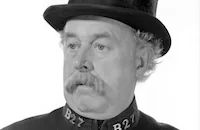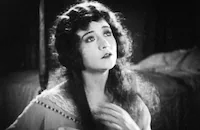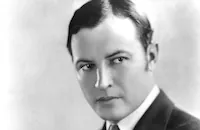Hotel Imperial
Brief Synopsis
Cast & Crew
Robert Florey
Isa Miranda
Ray Milland
Reginald Owen
Gene Lockhart
J. Carroll Naish
Film Details
Technical Specs

Synopsis
By December 1916, in the middle of World War I, the little Galician town of Sucha has been taken three times by the Russians and four times by the Austrians. Just outside the town, Anna Warshawska, a Polish actress in a small traveling theatrical troupe, attends the funeral of her younger sister, Sonja, a girl of seventeen who committed suicide. To find out why Sonja killed herself, Anna takes Sonja's job as a chambermaid in the Hotel Imperial without identifying herself. The hotel is the headquarters for whatever army currently occupies the city. She is hired by the porter, Elias, a mildly patriotic Austrian, and the housekeeper Anton, who pretends to be crippled to avoid military service. When the town is again attacked by the Russians, the Austrians flee, and Elias and Anton change the menu and switch official portraits from the archduke to the czar. On cavalry patrol nearby, the exhausted Lieutenant Stephen Nemassy of the Second Hussars is nearly caught, but escapes by a mad dash behind enemy lines. Arriving at the hotel, he evades a Russian search by hiding in room twelve. Aware that Sonja's lover had stayed in the same room, Anna begins to suspect Nemassy of being the cause of Sonja's death. The Russians are being led by General Videnko, a pompous artist, who decides to paint Anna. Nemassy is employed by Elias as a waiter, and after she learns there are two rooms numbered "12," Anna helps to conceal Nemassy's true identity. Kuprin, a Russian spy who uses the alias Von Alting in the Austrian army, visits Videnko to collect pay and deliver information. Meanwhile, Nemassy is arrested for lacking proper identification papers and is sentenced to be shot by a firing squad. Learning that Nemassy was in room twenty-four and "Von Alting" was in room twelve, Anna uses her influence with Videnko to save Nemassy. Anna and Nemassy plan to escape during the Russian Christmas revels, but when Kuprin is brought in as a prisoner, Nemassy, unaware Kuprin is a spy, feels it is his duty to stay and help a fellow officer. Before Anna can warn Nemassy about Kuprin, Nemassy reveals his true position to him and learns he is a spy. In the ensuing fight, Kuprin is fatally wounded, and Anna persuades him to approach the Austrian army as Von Alting and tell them their plans were betrayed by Kuprin, while she stays behind to divert the Russians by singing "Nitchevo." With his dying breath, Kuprin alerts the Austrians, but declares that Anna killed him. Videnko must now sentence her to death. Just in time, Nemassy leads an early morning Austrian attack on Sucha, expels the Russians and rescues Anna.

Director

Robert Florey
Cast

Isa Miranda

Ray Milland

Reginald Owen

Gene Lockhart

J. Carroll Naish

Curt Bois
The Don Cossack Chorus [serge Jaroff, Conductor]
Henry Victor

Albert Dekker
Ernst Verebes
Robert Middlemass
Michel Werboff
Spencer Charters
Bodil Rosing

Betty Compson
Wolfgang Zilzer
Egon Brecher
Bert Roach
Agostino Borgato
Paul Everton
George Magrill
Lee Shumway
Davison Clark
Harry Tenbrook
Paul Kruger
Ethan Laidlaw
William Bakewell
Norman Phillips Jr.

Robert Frazer
George Macquarrie
Arthur W. Cernitz
General Savitsky
Joseph Marievsky
Andre Marsaudon
Ferdinand Schumann-heink
Bull Anderson
Marek Windheim
Gustav Von Seyffertitz
Harry Holman
Stanley Andrews
Virginia Dabney
Raymond Brown
Jack Knoche
Robert Kortman

Russell Hicks
Stanley Blystone
Ferdinand Munier
Sheila Darcy
Norah Gale
Paula De Cardo
Judith King

Luana Walters
Crew
Franz Bachelin
A. M. Botsford
Phil Boutelje
Hans Dreier
Ralph Freed
A. E. Freudeman
Gilbert Gabriel
Stanley Goldsmith
Richard Hageman
Edith Head
Frederick Hollander
Chandler House
Arthur Jacobson
Don Johnson
William Lebaron
William Mellor
Gene Merritt
Boris Morros
Robert Thoeren

Film Details
Technical Specs

Quotes
Trivia
Actor Ray Milland was seriously injured while making this film. Playing a cavalry officer, Milland was leading a "charge" through a village. As they rounded a corner he saw that someone had left a camera on a tripod in the middle of the street. There was no time to try to pull around it or stop his horse, so Milland, an experienced horseman, tried to get the horse to jump over it. The horse cleared the camera, but the straps that held the saddle onto the horse snapped. Milland was thrown from the saddle, bounced off the wall of a building and landed in a pile of debris and broken masonry. He was unconscious for almost 24 hours and was hospitalized for two weeks.
Three actresses were cast as Anna. The first, Marlene Dietrich, was constantly at loggerheads with then-director Henry Hathaway -- he wanted to deglamorize her. After some rewriting by Grover Jones, she finally quit, and production was frozen. Margaret Sullivan was then brought in as Anna and shooting resumed, but while clowning around with Ray Milland on the set between takes (she was squirting him with a concealed water pistol), she fell on her arm and fractured it. She refused to do the rest of the movie in a sling as the studio heads demanded, and also quit. At this point Dietrich offered to come back, but Paramount refused, and instead brought in Italian sex symbol Isa Miranda. However, Miranda knew no English, and had to have all her dialogue supplied phonetically.
Notes
Production on this film underwent many changes before it was finally completed. In early January 1936, this film began production under the title Invitation to Happiness, with Marlene Dietrich and Charles Boyer starring, and with a script written by Melchior Lengyel and John Van Druten. A Hollywood Reporter production chart in mid-January shows that the title had been changed to I Loved a Soldier and the film was being produced by Ernst Lubitsch. Production continued under that title through 10 Feb, after which the film dropped out of the production charts, then reappeared on 16 March under the title Hotel Imperial, with a screenplay by Grover Jones. Henry Hathaway is listed in the chart as director and co-producer with Jones. By that time, Dietrich had been replaced by Margaret Sullavan, and Boyer was no longer in the cast. Other cast members at that point in production included Akim Tamiroff, Samuel S. Hinds, John Miljan, Ted Oliver, Nestor Aber, Siegfried Rumann, Harry Cording and Brandon Evans. The last production chart for Hotel Imperial in 1936 appeared on 23 Mar, and a news item in Film Daily on 27 March states that production was shut down when Sullavan broke her arm. According to a modern source, disagreements between Hathaway and Dietrich first caused the replacement of producer Benjamin Glazer by Lubitsch, then a re-write of the script and a title change to I Loved a Soldier. By March 1936, however, Lubitsch was no longer production chief at Paramount, and subsequent efforts to reunite Dietrich and Hathaway failed. Ultimately the old footage was discarded, and new production chief William LeBaron had an abbreviated script written for a more modestly-budgeted film. Italian actress Isa Miranda was imported to play the lead, and after testing such actors as Robert Preston, Ray Milland was given the role opposite her.
Production resumed in late October 1938. Rudolph Forster is listed in the cast in November 1938 production charts, but his appearance in the final film has not been confirmed. During the week of December 6, 1938, shooting took place at the Paramount Ranch. Lajos Biró's play was also the source of a 1927 silent film, also called Hotel Imperial, directed by Mauritz Stiller and starring Pola Negri (see AFI Catalog of Feature Films, 1921-30; F2.2597). The property has since been remade as a film many times, including Five Graves to Cairo (Paramount, 1943), directed by Billy Wilder and starring Franchot Tone, and Hotel Sahara (United Artists, 1951), directed by Ken Annakin and starring Yvonne DeCarlo.












